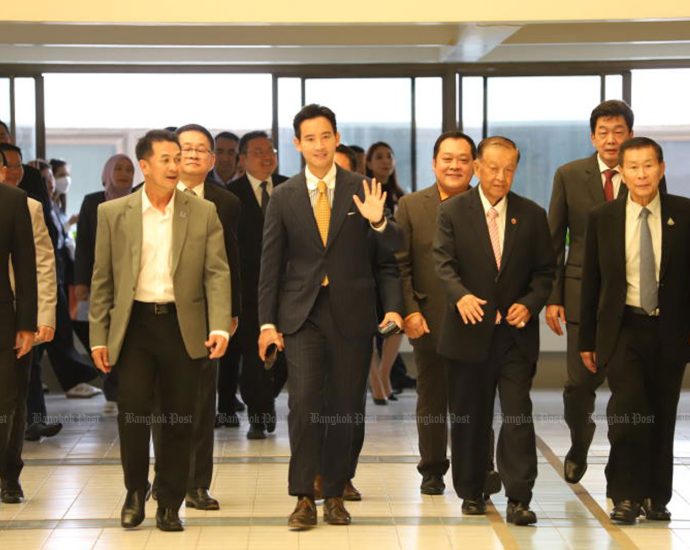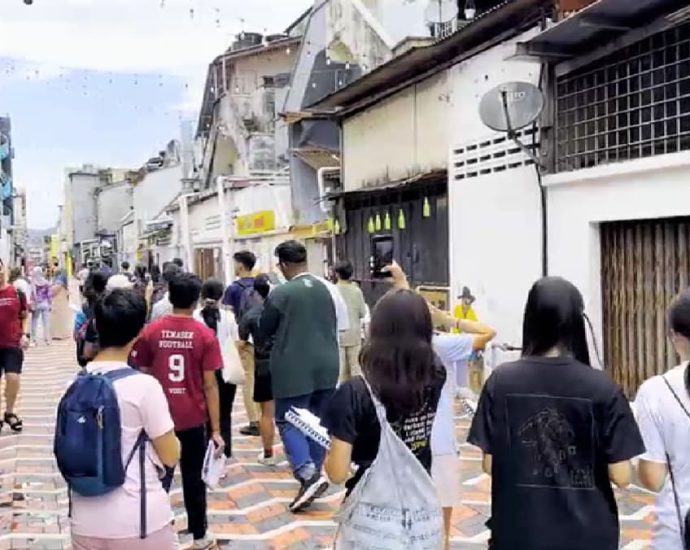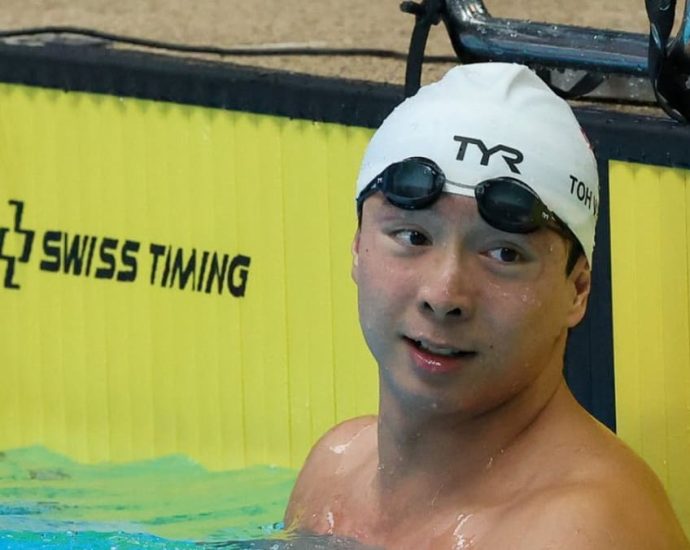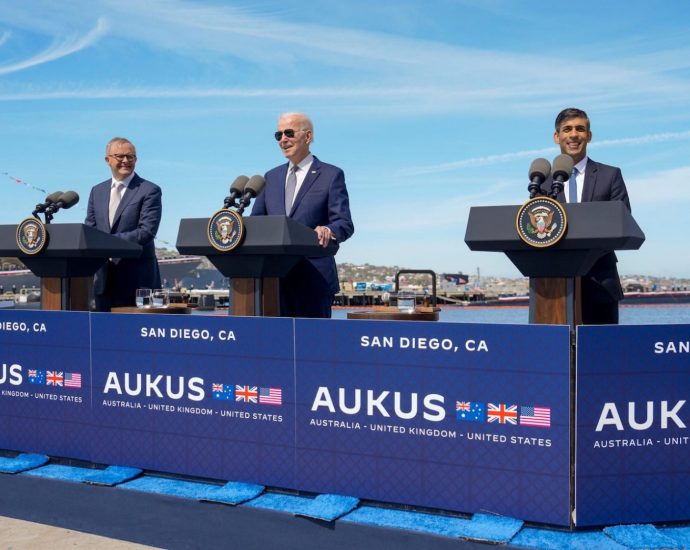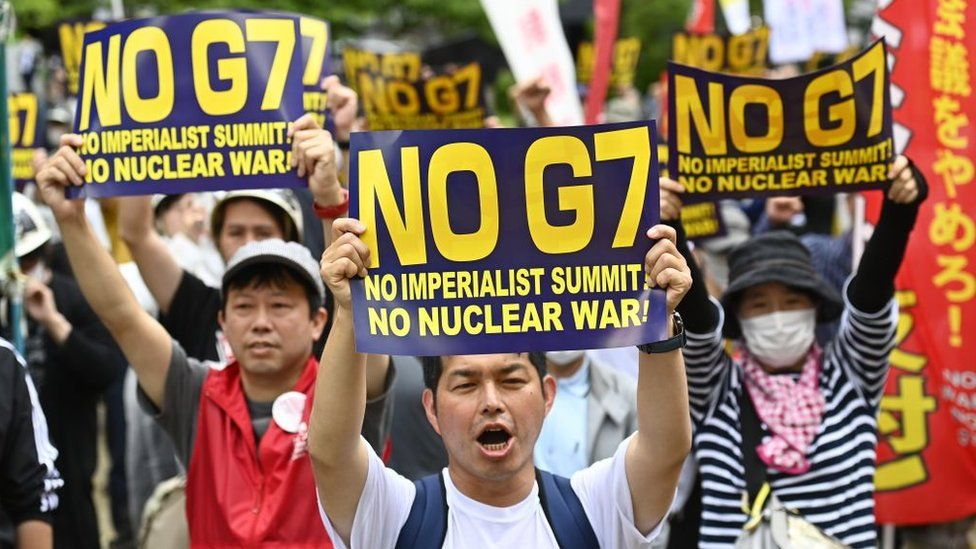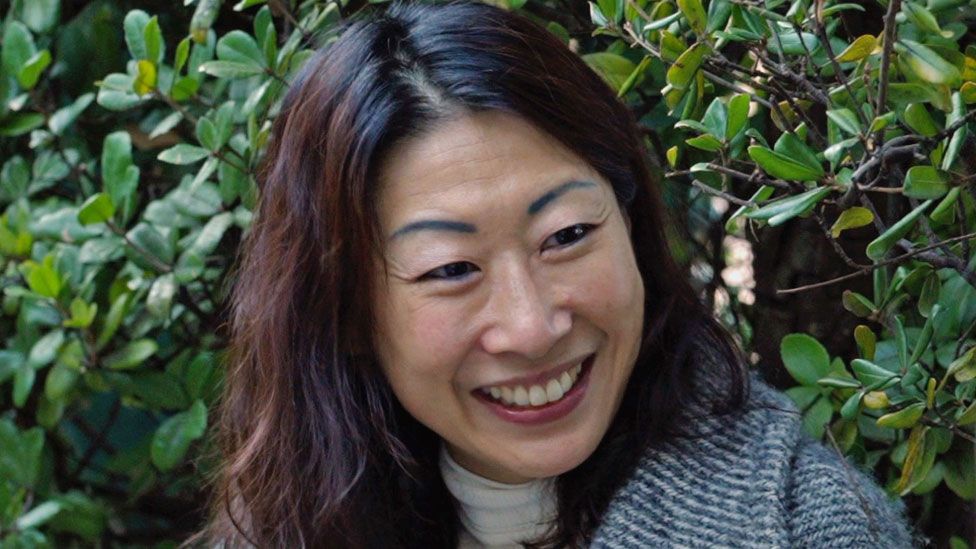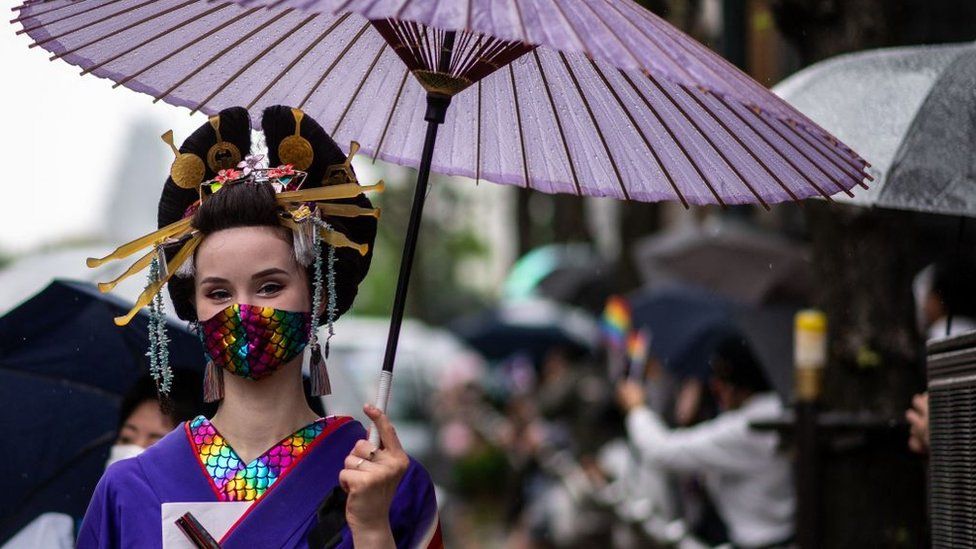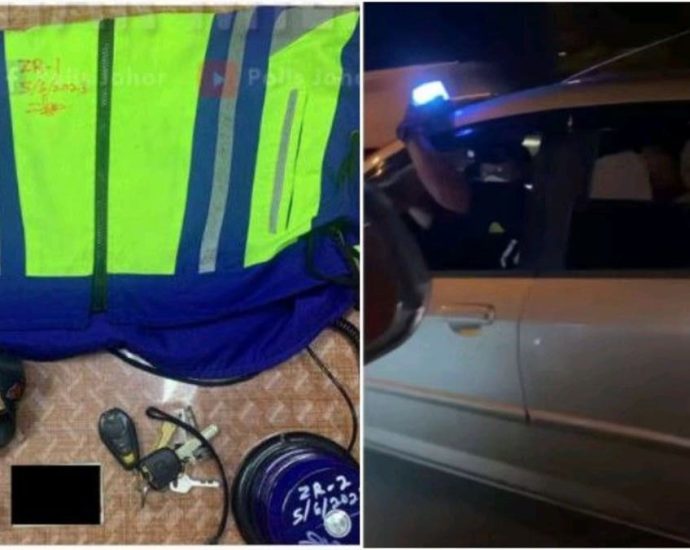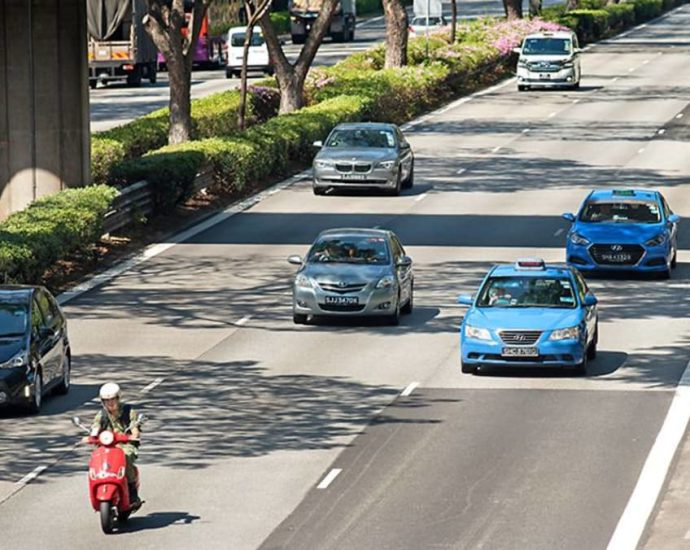The Positive Impact of Fintech in Serving the Underserved Community
Ideal solutions that are more accessible, affordable, convenient
Boost’s cross-border payment ecosystem brings together the underserved
Access to financial services is a fundamental component of economic growth and social development. Unfortunately, a significant portion of the global population, particularly in emerging markets, remain underserved or excluded from formal financial services. This could…Continue Reading
Eight-party alliance brings forward timeline to form government

An alliance of eight political parties has agreed to bring forward their timeline for forming the new government by 2-3 weeks, and set up two more working groups.
Move Forward Party (MFP) leader Pita Limjaroenrat chaired a meeting of the eight allies at the Pheu Thai headquarters on Wednesday.
Leaders and representatives of all eight parties attended, the others being Pheu Thai leader Cholnan Srikaew, Prachachat Party leader Wan Muhammad Nor Matha, Thai Sang Thai Party deputy leader Anudit Nakornthap, Pheu Thai Ruam Phalang leader Wasawat Poungponsri, Seri Ruam Thai leader Pol Gen Sereepisuth Temeeyaves, Fair leader Pitipong Temcharoen and a Palang Sangkhom Mai representative.
After the meeting, Mr Pita said they welcomed the Election Commission’s move to speed up the endorsement of at least 95% of all MPs-elect. If the EC endorsed the poll results more quickly, leaders of all eight parties agreed the planned formation of the next government could be moved forward by 2-3 weeks, well ahead of schedule, the MFP leader said.
Earlier, EC chairman Ittiporn Ittiporn Boonpracong said he was confident poll results would be endorsed more quickly than they were in 2019, and well ahead of the mid-July deadline.
Under the law, the EC has 60 days from Election Day, or until July 13, to certify at least 95% of all MPs-elect, to make the results official. In 2019, it completed this task on May 8, or 45 days after polling day. This year, the 45-day mark would fall on June 28.
If the government could be formed faster, budget planning could also be moved up 2-3 weeks, the MFP leader said. The alliance would meet again on June 20 at Thai Sang Thai headquarters, he added.
The eight parties also agreed to set up two more working groups, on reform of fishing sector and to oversee the transition of fiscal budgets.
Once the government was formed, budgets could be allocated to address the problems affecting the people, Mr Pita said. (continues below)

Leaders and representatives from the eight colaition parties arrive at the Pheu Thai headquarters in Bangkok on Wednesday. (Photo: Varuth Hirunyatheb)
On the party’s campaign cartoon featuring a hammer and sickle, the MFP leader said it represented the party’s 100 list candidates who were from the labour and agricultural sectors. He insisted there was no hidden motive.
This was in response to the EC’s questioning of the party’s campaign cartoon after a complainant asked the commission to investigate if the party was against constitutional monarchy, which would be a violation of the constitution.
The hammer and sickle is used to represent industrial and agricultural workers, the proletariat, and is also used by the communist movement. The commission asked why the MFP used the hammer and sickle, and what it meant in the campaign cartoon.
Regarding the complaint about his ownership of shares in the now-defunct iTV media firm, Mr Pita said he was waiting to hear from the EC on this matter.
He stood firm that he was the manager of his late father’s estate. He had not received the 42,000 shares originally held by his father, who died in 2006.
On Tuesday, Mr Pita said he had transferred the 42,000 shares to relatives to ensure there was no barrier to him being the next prime minister, amid attempts to block him from entering government
Mr Pita wrote on Facebook on Tuesday morning that the Prime Minister’s Office terminated its contract with iTV on March 7, 2007, and iTV had not been a media organisation since then.
“But now there are attempts to revive iTV as a mass media organisation, to attack me,” Mr Pita wrote.
He said that in its 2018-2019 financial statement, iTV was defined as a holding company but in two following financial statements it was defined as a TV organisation.
Mr Pita said he did not know who was behind attempts to revive iTV. He had heard it could be for the business interests of its executives, and also that it might be politically motivated against him taking government.
He had to manage the risk. He reiterated his belief the iTV shares case would not affect the forming of the new government. The MFP won 151 seats in the May 14 general election, earning the right to be the core party in forming a coalition administration.
In 2007, iTV stopped broadcasting and its licence was taken over by Thai PBS. The company was delisted from the Stock Exchange of Thailand in 2014. Its company registration has been kept active because it is embroiled in a dispute with the government over unpaid concession fees.
The major shareholder of iTV was Intouch Holdings Co, with 638,602,846 shares. Intouch’s major shareholder is Gulf Energy Development Plc.
Schools take extra safety precautions as they resume overseas trips after COVID-19 suspension
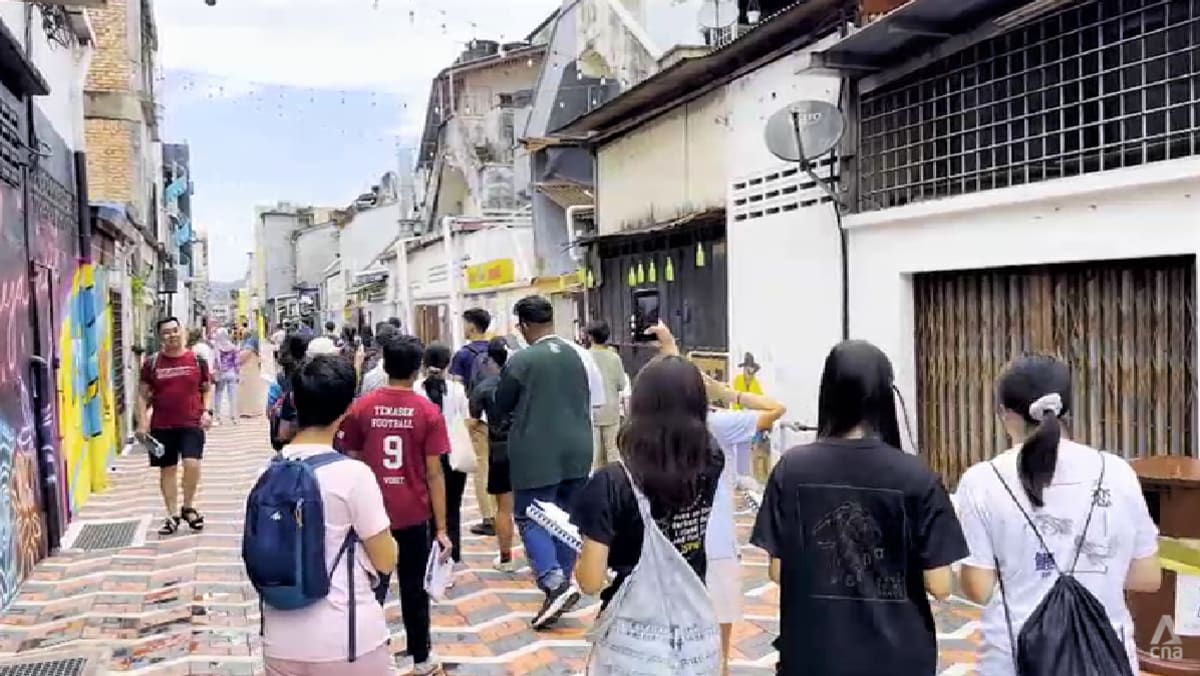
“We found out that one of the usual attractions that we used to go to had closed due to COVID, so we had to change the itinerary,” said TJC teacher Jared Wong.
“But at the same time, that also gave us a chance to find new sites to put into our itinerary that will also be meaningful sites.”
These new attractions include the Kuantan Art Street, which opened two years ago.
There, geography students learnt about the city’s efforts to urbanise and reinvent itself.
Caves and waterfalls were also part of the four-day trip last month.
Students told CNA that they are grateful to finally be able to travel for such learning opportunities.
GRATEFUL FOR LEARNING OPPORTUNITIES ABROAD
“That really brought the textbook to life, because we don’t have any limestone caves in Singapore,” said TJC student Liv Ng.
“Being able to go there and experience it was really majestic.”
TJC student Jovi Lai said: “We have this thing called ‘geography investigation’, where we have to go out onto the field, ask questions and conduct investigations to enhance our learning. It’s quite difficult for us to learn this online.
“So being able to go out onto the field, and into Malaysia really helped us quite a bit.”
3 more ASEAN Para Games golds for Singapore, 2 more meet records for Toh Wei Soong
In the field at the Morodok Techo National Stadium, meanwhile, Muhammad Diroy Noordin defended his title in the men’s F40/41 shot put. Singapore’s flag bearer at the 2021 Paralympics made it back-to-back golds with a throw of 9.17m. A total of 26 Team Singapore athletes are competing at this year’sContinue Reading
Macao wants to diversify from gaming to tech and finance, but struggles with talent shortage

As labour laws tighten, non-resident work permits are becoming harder to obtain. Yet, locals are not keen on many of these jobs.
“The shortage of manpower is real. Some hotel rooms are left unoccupied because these jobs pay too little and Macao residents are not willing to take them,” said New Macau Gaming Staff Rights Association’s president Cloee Chao,
Ms Chao suggested raising the minimum wage in these jobs to attract locals. However, the local labour force is also shrinking, with younger residents looking at job opportunities abroad.
“Some saw opportunities in foreign countries and eventually migrated. The younger generations choose to study abroad and some are not coming back to work after graduation.” said Macao legislator Ron Lam.
TRAINING AND RESKILLING
The Labour Affairs Bureau and its partners have invited big tech names such as Tencent and Alibaba to their career fairs in hopes of attracting young residents to stay.
Industry players are also working on talent retention by encouraging training and reskilling.
“For example, in the exhibition industry, there are many backstage jobs such as lighting, but those require training,” said Ms Chao.
“With appropriate training, it is possible to switch to other professions, such as getting an insurance or real estate licence.”
Mr Lam said he believes Macao should develop a framework that sets a standard for career development and a benchmark for wages.
“If locals are required to be competitive and continue to study, the government should take the lead in building a qualification framework that is based on a tripartite agreement that brings together government, industry and labour,” he said.
He added that with such a qualification, it would be easier for residents to develop in different fields.
Where AUKUS subs should and shouldnât roam
A legal foundation for AUKUS is the freedom of navigation. This raises some fundamental issues under the international law of the sea which have mostly been sidestepped in AUKUS debates.
For example, where will Australia’s nuclear-powered AUKUS submarines be able to sail? Will there be limitations on their navigation? What does the international law of the sea say about submarine navigation?
These issues have been highlighted in the debate about AUKUS in Southeast Asia since the deal between Australia, the United Kingdom and the United States was announced in September 2021.
Indonesia and Malaysia, for example, have raised concerns over the possible presence of Australian nuclear-powered submarines in their waters. This goes directly to the issue of how the freedom of navigation can be exercised by submarines under the law of the sea, particularly nuclear-powered submarines.
It is helpful to consider the waters that the AUKUS submarines will principally operate in to frame the legal issues. The submarines will most probably be based either at HMAS Sterling in Western Australia or somewhere along Australia’s eastern seaboard.
When on operations the submarines would move from their base beyond the 12 nautical mile Australian territorial sea and into the 200 nautical mile Australian exclusive economic zone (EEZ). Within those waters, the submarines would be exercising navigational rights as Australian-flagged warships.
Beyond the Australian EEZ are the high seas of the Indian Ocean and Pacific Ocean where the submarines may undertake patrols. The freedom of navigation of the high seas is a fundamental principle of the law of the sea and of international law. There is no legal impediment to the submarines being able to navigate on the high seas.
But navigation becomes more sensitive and controlled in other waters and this is where the law of the sea becomes prominent.
The 1982 UN Convention on the Law of the Sea (UNCLOS) — the “Constitution of the Oceans” — is the primary treaty governing the oceans. Indonesia, Malaysia, the Philippines, Singapore and Thailand and the key states in the Southwest Pacific are all parties to UNCLOS.
While the United States is not a party to UNCLOS, it has consistently argued that the convention represents customary international law. That view is generally not contested with respect to the key provisions dealing with navigation.
UNCLOS freedom of navigation entitlements were critical to the negotiation of the convention and enabled coastal states to claim a 12-nautical mile territorial sea and 200-nautical mile EEZ.
The entitlements were also essential to the eventual recognition of the archipelagic state concept — a key goal for some island states — and one which Indonesia and the Philippines advanced during UNCLOS negotiations.
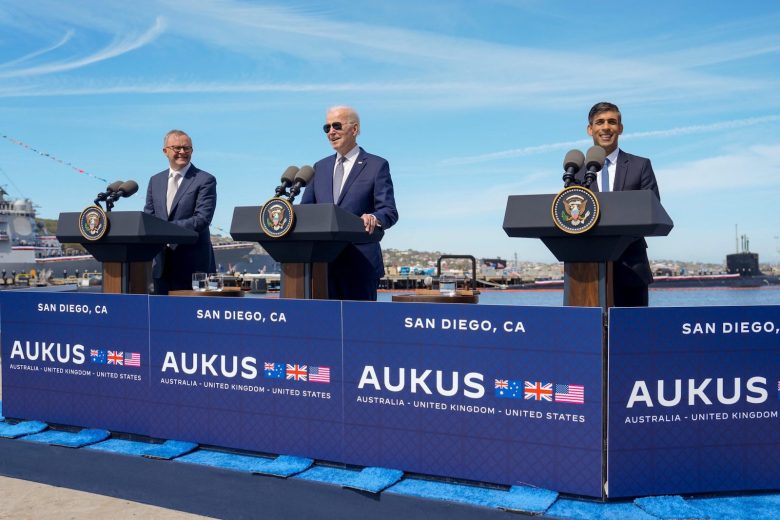
The major maritime powers would not have accepted expanded maritime zones and recognition of the status of archipelagic states without clear legal entitlements of the freedom of navigation within certain waters for merchant ships and warships, including submarines.
UNCLOS recognizes the right of innocent passage for the ships of all states within the territorial sea (Article 17). Submarines are expressly included within those entitlements, subject to navigating on the surface and showing their flag (Article 20).
But territorial sea navigation by AUKUS submarines is not central to their defense and strategic capability. More important is the ability of the submarines to pass through international straits, especially archipelagic waters.
The Torres Strait and the Straits of Malacca and Singapore surround Australia. But these straits are shallow, congested and navigationally challenging and are less attractive to submarines. Transit passage is the UNCLOS navigational right that applies within international straits (Article 38).
Submarines should pass through international straits without delay and refrain from threats or the use of force and activities other than those consistent with “normal modes of continuous and expeditious transit” (Article 39).
This means that submarines can pass submerged through an international strait where it is safe to do so. Littoral strait states have limited capacity to regulate the passage of such vessels which also enjoy sovereign immunity.
The regime of archipelagic sea lanes passage (ASLP) within recognized archipelagic states (Article 53) — of which there are 22 including Indonesia, Papua New Guinea and the Philippines — is also significant to AUKUS. The right of ASLP modifies transit passage through archipelagic waters — a body of water comprising multiple interconnected straits.
Within designated archipelagic sea lanes or normally used navigation routes, ships can pass through archipelagic waters — like an international maritime highway — from an entry point to an exit point.
Submarines can pass through archipelagos submerged and archipelagic state have very limited capacity to regulate submarine navigation conducted consistently with UNCLOS.
The capacity of AUKUS submarines to sail from Australian waters through the straits and archipelagos of Southeast Asia to the South China Sea and East Asia rests on the freedom of navigation recognized in UNCLOS.
Freedom of navigation is an entitlement that the US Navy — both its submarines and its other nuclear-powered and nuclear-armed warships — have been exercising for decades. Submarines engaged in transit passage or ALSP cannot have their navigation hampered. This right of navigation, if conducted consistently with UNCLOS, cannot be suspended.
Attempts to single out Australia’s future AUKUS nuclear-powered submarines for exceptional navigational regulation are not consistent with the law of the sea.
Donald R Rothwell is Professor of International Law at the ANU College of Law, The Australian National University.
This article was originally published by East Asia Forum and is republished under a Creative Commons license.
Japan rethinks tattoo ban in defence forces to lift recruitment
 Getty Images
Getty ImagesJapan’s defence force is rethinking a ban on tattoos as it tries to increase recruitment from a rapidly shrinking population.
Tattoos have long been a taboo in the country, where they are associated with mafia-like criminal gangs known as yakuza who sport elaborate skin art.
But officials now say that young Japanese sport tattoos for sartorial reasons, not to identify with yakuza.
And they also argue that the ban is hindering enlistment.
The Japanese Self-Defence Forces (JSDF), the country’s answer to a military, is 10% short of its troop capacity and missed its recruitment target last April, officials say.
“Rejecting applicants just because they have tattoos poses a problem in terms of enhancing the human resources base,” Masahisa Sato, an MP from the governing Liberal Democratic Party, recently said.
The head of the defence ministry’s personnel bureau, Kazuhito Machida, has said that the ban must be reconsidered given Japan’s declining birth rate.
The country of 125 million had fewer than 800,000 births in 2022, down from more than two million in the 1970s. Prime Minister Fumio Kishida has said it is “now or never” for Japan to address its shrinking and ageing population.
This has also increased the pressure on Japan to fill vacancies in the JSDF as it doubles military spending, in response to China’s growing might, and North Korea’s nuclear arsenal. There are also enduring calls for Japan to revise its post-war pacifist constitution to respond better to rising tensions in the Asia-Pacific, and the Russian invasion of Ukraine.
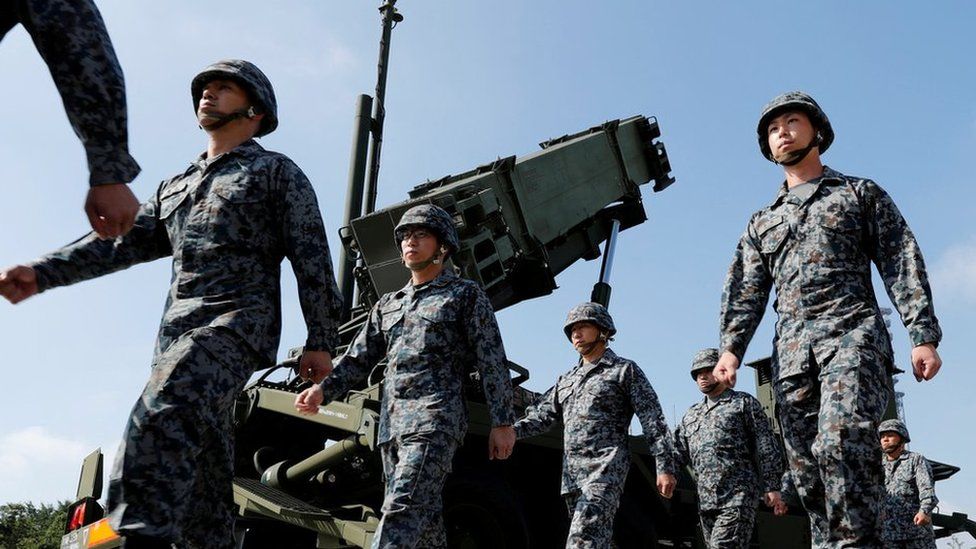
It’s unclear when the final decision will be made, but scholars say there was a time when tattoos were common in Japanese culture. But encounters with Europeans in the 1800s changed that, according to Yoshimi Yamamoto, a cultural anthropologist at Tsuru University, who has studied tattoo culture in Japan and Taiwan.
“Civilized Europe” saw the full-body tattoos on the Japanese as “backward”, which led the latter to cover up the ink, except during religious festivals, Ms Yamamoto said in an online lecture in 2019.
The taboo intensified in post-war Japan when films on the yakuza boomed in the 1970s and 1980s. That’s when they became synonymous with criminal activity.
“Tattooed people are feared almost automatically,” Ms Yamamoto says.
The yakuza imagery was most recently reinforced in the 2013 Hollywood movie The Wolverine, where Hugh Jackman took the origin story of his most popular film persona to the streets of Japan, she added.
The fear and suspicion extends enough that people with tattoos are banned on some beaches, and in some onsens or public baths.
But this is starting to be challenged, Ms Yamamoto said, as more and more young people opt for tattoos purely as a personal choice and statement.
-
-
15 October 2015
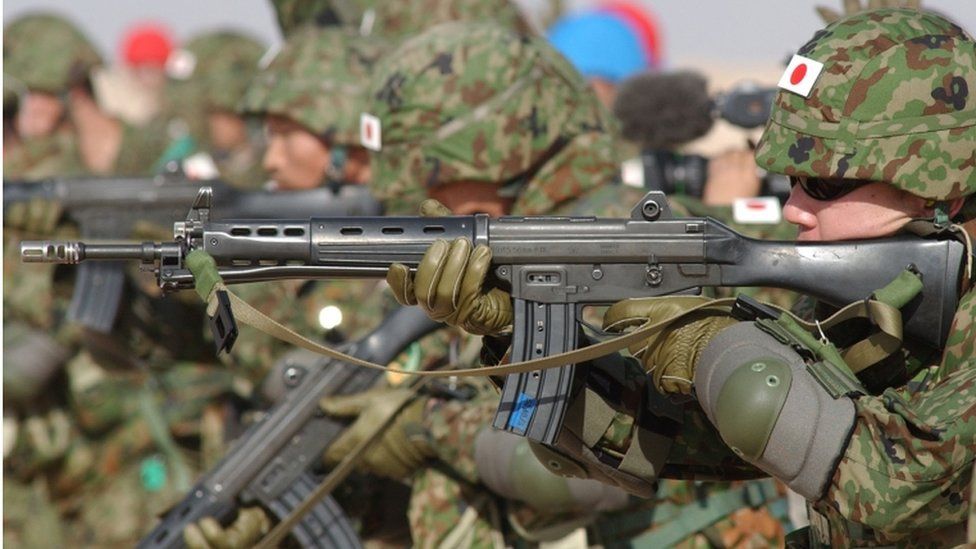
-
-
-
10 hours ago
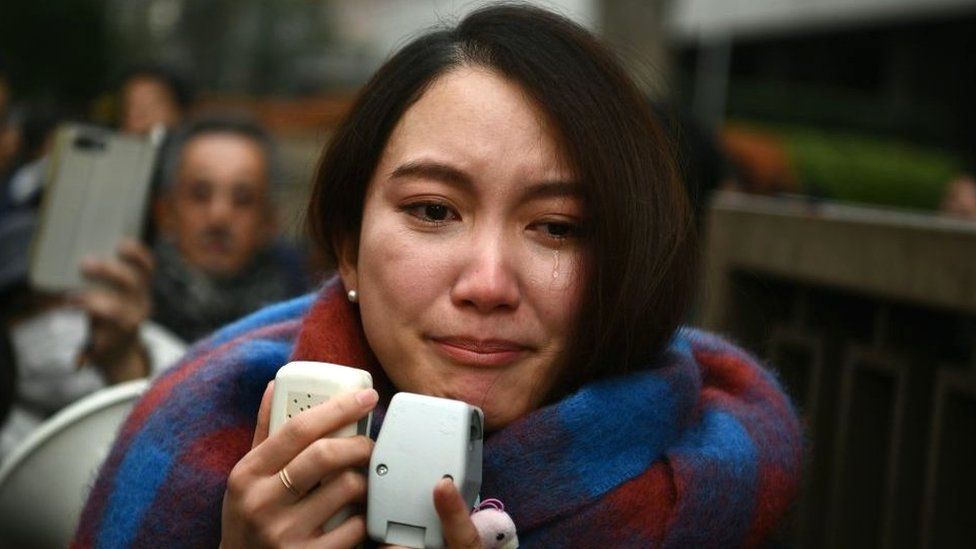
-
CNA Explains: What to do when being chased by a fake police vehicle while driving in Malaysia?
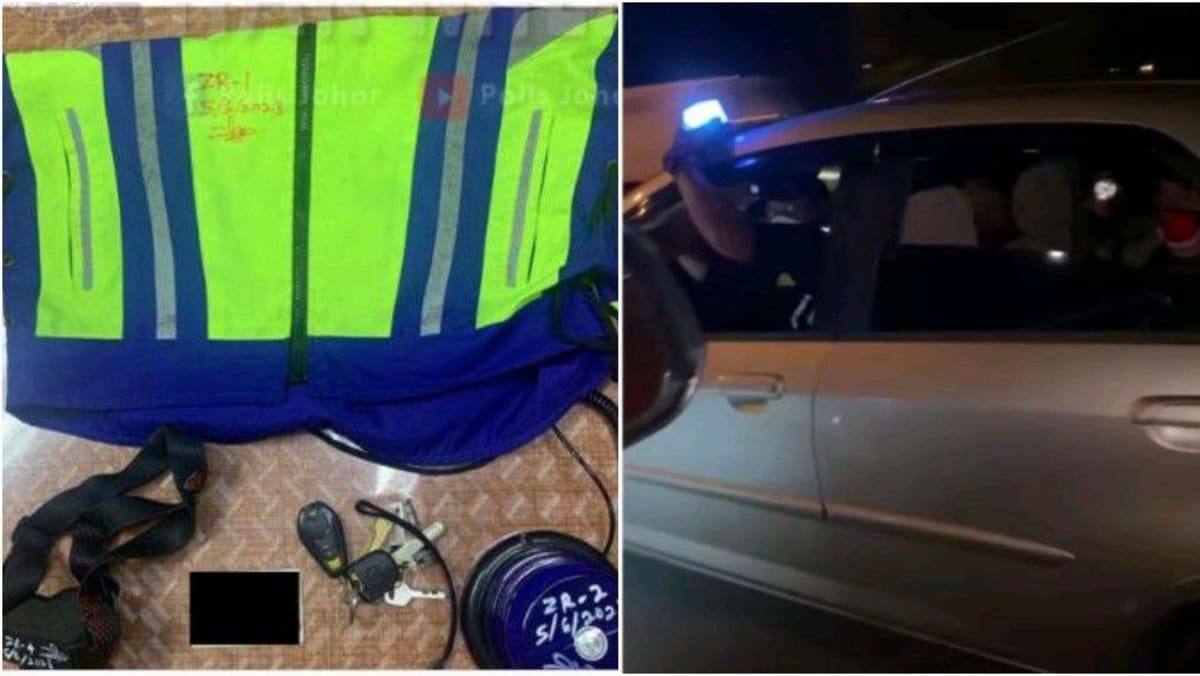
The spokesperson added that unmarked cars are indiscernible from normal cars on the road and they are typically used for covert operations.
“However, traffic violations along highways are usually attended to by marked patrol cars,” said the spokesperson.
The spokesperson added that motorists who are not the target of any specific criminal investigations are then unlikely to be stopped by unmarked police cars.
However, Tengku Ahmad Marwan Tengku Mahmud – a road safety affiliate with the Malaysian Institute of Road Safety Research (Miros) – told CNA that there may be some occasions where police officers use their own private vehicles for investigation and this may complicate matters.
“I have seen police officers or detectives investigating criminal cases use their own private cars and they too use portable beacon lights so I understand that it can be difficult to ascertain,” said Tengku Ahmad Marwan.
“Perhaps police should outline clearly to the public what vehicles they use for which operations so that it’s clear,” he added.
WHAT SHOULD MOTORISTS DO?
If a motorist suspects that they are being pursued by fake cops, what then should they do?
Tengku Ahmad Marwan, who is also a member of the Selangor state road safety council, stressed that motorists faced with such a situation must maintain composure.
He said that it would be most ideal for the motorist to stop at a nearby police station. However, if this is not practical, motorists are advised to only pull over in a well lit area with crowds around.
“Firstly, do your best to ascertain whether the car in pursuit is an official police vehicle. But once you are confident that it is a fake, you have to stay calm,” he said.
“Stop your vehicle at a place where there are crowds or members of the public around, like a petrol station or a highway rest stop. Ensure you are stopping at a well lit area with people around. This will make it less likely for you to get robbed or attacked,” added Tengku Ahmad Marwan.
He also stressed that drivers remain calm to ensure that they continue to drive safely and not endanger others on the road.
“Always ensure safety while driving. Even when placed in this situation where you are being chased by (suspected) fake police officers and have to quicken your speed to safely get away, ensure you have control of your own vehicle and do not hit other vehicles or motorists,” said Tengku Ahmad Marwan.
The state assemblyman for Senai, Mr Wong Bor Yang, echoed similar sentiments.
In a Facebook post on Monday, Mr Wong urged motorists who suspect they are being pursued by fake cops to “drive to the police station in a safe manner” and make a report, providing details such as the vehicle’s licence plate as well as its make and colour.
“If you are indeed stopped by someone claiming to be a police officer, you have the right to request for their identification and enquire why you were stopped,” wrote the Democratic Action Party politician.
He added that those who impersonate police officers may be charged under section 170 of the Penal Code.
Missing Malaysian woman tracked to Myanmar border

CHIANG RAI: A missing 22-year-old Malaysian woman went to a river pier on the border with Myanmar in Mae Sai district before her worried family lost contact with her, according to official sources.
Official sources said Chong Sum Yee aka Angie checked in to a hotel near the Mae Sai border checkpoint on May 29.
The following day she rode on a motorcycle towards the border in tambon Koh Chang of Mae Sai, where the Ruak River delineates the frontier, with Tachilek township in Myanmar on the other side.
The young woman tourist was seen in surveillance camera footage sitting in the lobby of the hotel. A white-clad woman greeted her in a friendly manner and they both then walked out of the hotel.
She was seen riding pillion on a motorcycle towards the border in tambon Koh Chang.
Officials had found the woman motorcyclist, who said that Angie paid her 500 baht to go to a border pier in tambon Koh Chang. She did not know if the Malaysian woman crossed the border.
The signal from the missing woman’s mobile phone disappeared at the border in tambon Koh Chang. Thai officials said she might have entered Myanmar using an unofficial border crossing point.
Thai officials have asked their counterparts in Myanmar to look for the missing woman. They were awaiting an official complaint from her family.
COE premiums, including Category A and B, largely rise; Open category falls
SINGAPORE: Certificate of Entitlement (COE) premiums for Category A and B closed higher in the latest bidding exercise on Wednesday (Jun 7) after falling in May under the increased quota for cars in the two categories. For Category A, which is for smaller cars, premiums closed at S$98,001 (US$72,661), up from S$92,000Continue Reading


